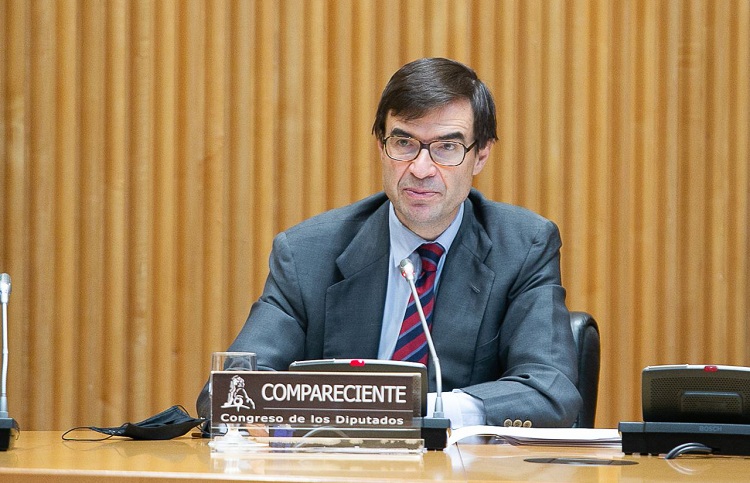The Diplomat
The recent US recognition of Moroccan sovereignty over Western Sahara and Morocco’s recent rearmament may represent a challenge to Spain’s territorial integrity, according to a report published by the Institute for Security and Culture.
The report, authored by Guillem Colom, Guillermo Pulido and Mario Guillamó, is entitled ‘Morocco, the Strait of Gibraltar and the Military Threat to Spain’, and analyses the latest diplomatic, political and economic successes of the Alaouite kingdom.
The text recalls that the recognition of Moroccan sovereignty over Western Sahara -made by Donald Trump– and which Joe Biden’s administration has no intention of reversing – commits Morocco to normalising its relations with Israel and is framed within the framework of the Abraham Accords, with which the US hopes that ‘the normalisation of relations of the most powerful Arab countries with Israel will force the Palestinians to sign peace with Jerusalem under the most beneficial terms for Netanyahu’.
In reality, as the authors of the report explain, Morocco has been able to take advantage of this US strategy to achieve diplomatic success at very little cost, since “Israel and Morocco have long-standing and deep economic, political and security relations”.
At the same time, the report notes, US recognition also undermines the influence that Spain and, above all, France maintain in the Maghreb and strengthens the position of the United States as a balancing power through its Moroccan ally. And, in a context of weakness of the other countries in the region, European strategic autonomy, and in the face of growing Sino-Russian influence, for Washington, “Morocco becomes a solid bet as a guarantor of regional security and an agent for channelling its national interests”.
Diplomatically, the US manoeuvre, according to the report, benefits and strengthens the Alawite kingdom in its dispute with the European Union over the exploitation of the waters of Western Sahara, as well as Morocco’s aspiration to extend its continental shelf to 350 nautical miles and extend its Exclusive Economic Zone, coming into direct conflict with the waters of the Canary Islands. The economic interests in these waters go beyond fishing, as the seamounts of the Canary Islands are rich in metals such as tellurium, cobalt and lead.
US support, the document argues, could embolden Morocco vis-à-vis neighbouring countries and lead the Alawi kingdom to “take decisions that unilaterally infringe on the sovereignty of other states”. A week after Trump’s recognition, the Moroccan prime minister argued that “the day will come when we will reopen the issue of Ceuta and Melilla, Moroccan territories like the Sahara”.
On the economic front, the US position favours the opening of new markets and is a major boost to Morocco’s desire for economic leadership, already Africa’s fifth largest economic power and one of the so-called ‘African Lions’.
Western Sahara fits into the Alawi kingdom’s economic development plans, firstly, as a source of exports, mainly phosphates. Secondly, it is key to Morocco’s main infrastructure project, the Tangier-Med port. As a final point in the infrastructure trade network of the “Tangier-Dakar Axis”, its success and future vision depend on the free and secure transit of land goods through Western Sahara. Third, Western Sahara has important economic and geopolitical implications due to the proposed construction of a trans-Saharan gas pipeline connecting Nigeria, Morocco and Europe. The key point is that, in addition to providing gas to 13 West African nations, this project will undermine Algeria’s gas monopoly.
This last point, the report notes, is important in relation to the historic conflict between Morocco and Algeria and the renewed arms race between the two countries. In addition to its political and economic ambitions, Morocco aspires to achieve regional military supremacy, for which, among other things, it has pursued since 2017 a five-year rearmament plan worth $22 billion with support from the US and Saudi Arabia.
This rearmament has eliminated Morocco’s main military weaknesses and has provided its armed forces with important advanced capabilities, which seek to unseat Algeria, which is not at its best, as the main regional military power.
In addition to the strategic instability that this race generates in the short and medium term in North Africa, in the long term, Moroccan rearmament could present a challenge to Spain’s military capacity, the report estimates.
This, together with economic projects such as Tanger-Med, which competes directly and with significant advantages with the ports of Algeciras, Valencia and Barcelona, and Morocco’s political and territorial ambitions, means, according to the study, that both Spain’s economic interests and territorial integrity could be seriously threatened in the future.







